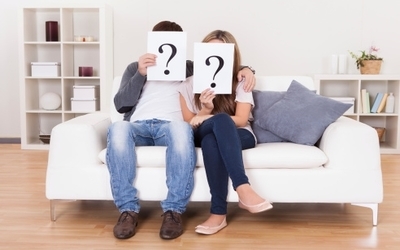A sexual health problem known as HSDD can really take its toll on your wellbeing. HSDD – which stands for hypoactive sexual desire disorder – occurs when you have a persistent lack of desire or absence of sexual fantasies. In other words, you’re rarely in the mood, rarely initiate sex and rarely seek sexual stimulation. According to Drs. Jennifer and Laura Berman, two of the nation’s top experts on sexual health for women, this lack of desire could come out of relationship wellness issues. In their book, For Women Only: A Revolutionary Guide to Overcoming Sexual Dysfunction and Reclaiming Your Sex Life, they write, ‘Communications problems, anger, a lack of trust, a lack of connection and a lack of intimacy can all adversely affect a woman’s sexual response and interest.’ However, there are also medical causes of HSDD, which include:
1. Medication Use: If you’re on prescribed drugs, they could be affecting your sexual wellness in a number of ways. Antidepressants known as selective serotonin reuptake inhibitors, for example, work to combat your depression by increasing the production of serotonin in you brain, but this hormone is known to, unfortunately, dampen your sexual desire. Other prescription medications also affect the balance of your sexual hormones and the transmission of your body’s chemical messengers. Drugs such as antihypertensives and birth control pills, as well as antidepressants, have been known to interfere with sex drive, arousal and orgasm, and may be contributing to your HSDD.
2. Menopause: A lot of the symptoms of menopause are rough, but knowing what causes them can help you to fight back, particularly when it comes to your sexual desire. Whether the onset of your menopause occurs naturally or surgically, it will be due to a gradual decline of your oestrogen, progesterone and testosterone hormones. The Bermans point out that reduced testosterone levels are particularly well-known for leading to a ‘sudden or gradual’ decline in sex drive. You may think that hormone-replacement therapy (HRT) could help to readdress this balance, but you’d be wrong; the ironic fact of the matter is that the conventional hormone replacement regimen of oestrogen and progesterone which is given to relieve menopausal symptoms can make matters worse. This is because a protein called steroid hormone-binding globulin is increased with raised oestrogen levels. When there are higher levels of this protein in your blood, it binds to testosterone, which causes this libido-boosting hormone to become less available to your body.
3. Depression: It’s not hard to see how depression can make you less in the mood for sex, but this diminished sex drive can, in turn, exacerbate your depression, leaving you in a vicious cycle of sexless sadness. Research shows that 12% of all women will experience clinical depression at some point during their lives and, as lowered libido is a common symptom of depression, it’s an issue of mass importance. Plus, as we’ve already covered, using certain popular antidepressants – including Prozac, Paxil and Zoloft – has the much-unwanted side-effect of further inhibiting your libido, meaning that depression packs a triple-threat against your sex life. The Bermans also note that some low-grade forms of depression, such as dysthymia, can also get in the way of your libido. In some ways, this is worse as you can usually function normally with dysthymia, and so it may go undiagnosed and un-addressed. If you’re experiencing dysthymia, you may find that you often feel isolated and overwhelmed, and it is these feelings that cause women to withdraw from sex, as well as social activities. If this or any of the above mentioned causes of low libido may be a problem for you, consult your GP for solutions.
